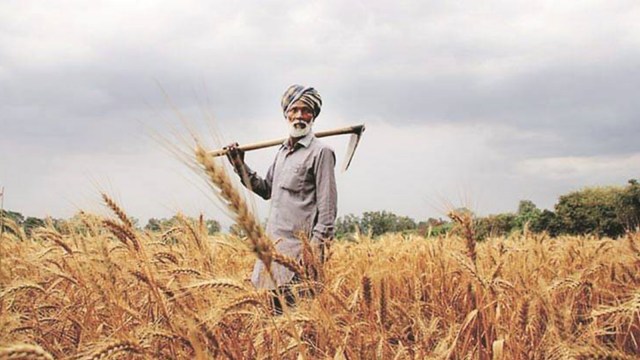Punjab farmers anxiously await HC decision on hybrid paddy varieties as sowing window grows smaller
A seed dealer from Kapurthala said farmers had been growing notified hybrid varieties of paddy for the last four to five years, but millers never raised an issue until last year, which led to the ban on hybrid varieties.
 Farmers await HC verdict on hybrid paddy as sowing deadline nears. (File Photo)
Farmers await HC verdict on hybrid paddy as sowing deadline nears. (File Photo)Thousands of farmers and seed dealers have been left in a state of anxious anticipation since the Punjab and Haryana High Court, on May 19, reserved its order on the sale of hybrid paddy varieties in Punjab.
The court reserved its decision after holding five hearings since April 25 in the crucial case. The decision, which was expected within days, has left farmers frustrated even as more than half of the time required for growing paddy nurseries has already passed. Farmers said the court should announce its decision as soon as possible so that they can decide which variety to plant this season.
“We have already started preparing our nurseries for the hybrid seeds we procured from Haryana as well as the non-banned traditional paddy varieties. If the court rules against hybrid seeds now, we will go for the traditional variety, and vice versa,” said a farmer from Patiala. He stressed that the sowing window is extremely time sensitive, and any delay in nursery preparation would delay planting, which could ultimately affect the entire harvest. “We need clarity from the court soon,” he added.
A seed dealer from Kapurthala district said, “Based on the demand from farmers in our area, we placed an order with the company that prepares hybrid seeds, but now we cannot sell it in Punjab due to the government ban on the sale of even notified hybrid paddy seeds. We are not sure whether we will face huge losses.”
He added that farmers have been growing the notified varieties for the past four to five years, but millers never raised an issue until last year, which led to the ban.
Farmer Jaspal Singh, who has been growing hybrid varieties since 2020, said, “I will grow the same this year too as I have prepared the variety and I’m now awaiting the court’s decision. If the decision is against the hybrid variety, I will sell my crop to a rice miller who has assured me that he will purchase it. Officials with the agriculture department are coaxing us to purchase Punjab Agricultural University (PAU) and Ludhiana varieties, which I used to grow earlier. But there isn’t a single PAU variety that can yield as much as hybrid varieties.”
“When millers in Haryana are willing to buy these hybrids, why are dealers in Punjab creating issues? The reasons are best known to them and the Punjab government, which has banned it. Haryana hasn’t banned it. How can hybrids be good for Haryana but not for Punjab,” he asked. Jaspal added that with hybrid varieties, he was earning Rs 15,000 to Rs 16,000 more per acre, besides saving a significant amount of water due to the short duration of the crops.
Another hybrid paddy grower from Jalandhar, who has also struck a deal with a miller to sell his crop, said, “Actually, PAU wants to create a monopoly in seed sales. We are willing to buy its seeds, but first, it should come out with high-yielding varieties, like hybrids.”
“Instead of guiding farmers about the best time for sowing these varieties, they are blaming hybrids without any scientific reasoning,” said an agriculture development officer, who grows hybrid varieties on his 10-acre farm.
Ajai Rana, chairman of the Federation of Seed Industry of India, said, “As the high court has reserved its verdict on the Punjab government’s decision to ban hybrid rice, the seed industry remains hopeful for a balanced outcome that recognises the role of science and innovation in agriculture. Hybrid rice is a proven solution to meet the dual challenges of increasing productivity and conserving natural resources. It offers 5-6 quintals more yield per acre, and short-duration varieties mature faster.”
“These hybrids support Direct Seeded Rice practices, which reduce water use by 30 per cent and lower emissions. They are also bred for better tolerance to abiotic stress and resistance to major pests, helping farmers manage risks more effectively. All hybrids currently available in the market have undergone rigorous three-year trials under ICAR’s All India Coordinated Rice Improvement Project and comply with national milling standards, including the 67 per cent Out Turn Ratio mandated by the Food Corporation of India,” said Rana who is also the MD and CEO of Savannah Seeds.
“We remain committed to working with the Government of Punjab, central regulators, and other stakeholders to build an ecosystem that empowers farmers with high-quality seeds and advanced biotech tools while contributing to sustainability, groundwater conservation, and food security,” he added.
As the days pass, anxiety continues to mount among both farmers and seed dealers. “Justice delayed is justice denied. We hope we don’t have to face that situation,” said a farmer







